UNHCR concerned over ending of rescue operation in the Mediterranean
This is a summary of what was said by UNHCR spokesperson William Spindler – to whom quoted text may be attributed – at today's press briefing at the Palais des Nations in Geneva.
UNHCR is concerned over the announcement of the ending this month of the Italian operation Mare Nostrum without a similar European search and rescue operation to replace it. This will undoubtedly increase the risk for those trying to find safety in Europe, and could lead to more refugees and migrants perishing at sea. It is estimated that 3343 people have lost their lives this year while making such journeys, 2755 of them since the start of July.
UNHCR has welcomed Mare Nostrum, which has contributed to the rescue of around 150,000 refuges and migrants since it began a year ago as a response to two tragedies off the coast of Lampedusa, where over 600 refugees and migrants died. Today, UNHCR reiterates its call for Europe to commit more resources to rescue at sea in the Mediterranean.
It is critical that the long-established tradition of rescue at sea is upheld by all. UNHCR also recognizes the efforts made by many commercial vessels - this year alone they have contributed to the rescue of about 37,000 people. To the extent possible, such rescue must ensure minimal financial impact on the shipping industry. Predictability on places for the disembarkation in safety of those rescued is also required.
In addition, Europe needs to step up efforts to provide credible legal alternatives to dangerous voyages to protect people from the risks of traveling with smugglers. The collective response needs to maintain a strong capacity to rescue people at sea and increase safer ways for refugees to find safety in Europe, including enhanced resettlement, other forms of humanitarian admission and private sponsorship schemes. UNHCR is also calling on European governments to do more to facilitate family reunification and use programmes such as student or employment visas to benefit refugees.
The level of desperation among many of those involved, fleeing war, persecution and violence, including from Syria require our concerted efforts to respond. This trend began in June and July last year, before Mare Nostrum was established, and has continued in 2014. In addition, an increased number of women, children, including many unaccompanied, and elderly people are taking to dangerous sea routes. They face greater risks, are more vulnerable to abuse and have specific needs that require assistance after they are rescued.
These challenges cannot be addressed by a few states alone; a joint European response is needed, based on collaboration among states and EU support. These efforts also need to ensure additional initial reception facilities, adequate reception conditions, assistance in processing as well as identifying solutions for those in need of international protection
For more information on this topic, please contact:
- In Rome, In Rome, Carlotta Sami on mobile +39 335 679 4746
- In Rome, Federico Fossi on mobile +31 349 0843461
- In Geneva, William Spindler on mobile +41 79 217 3011
Related news and stories
First UNITY Cup shows the power of football to connect refugees and hosts
Scholarships in Italy allow refugees to dream again
Relief for asylum seekers offered a new life outside Libya
Evacuation flights from Libya to Italy bring hope for vulnerable asylum seekers
UNHCR and Council of Europe discuss statelessness, urge States to uphold the right to a nationality in Europe
UNHCR warns of mounting refugee and migrant deaths in the Central Mediterranean
-

Middle East and North Africa Global Refugee Forum Stocktaking and NGO/Civil Society Consultations Outcome Report
15 Sep 2021 The MENA Global Refugee Forum Stocktaking and NGO/Civil Society Consultations took place on 20 – 21 April 2021, bringing together over 150 participants from Egypt, Iraq, Jordan, Kuwait, Tunisia, Morocco, Lebanon, Libya, Mauritania; participants from regional organizations and multi-stakeholder partners. It included discussions on the practical ways in which actors are advancing the GCR and implementing GRF pledges, considering COVID-19, and considering the evolving challenges and opportunities on the ground. -
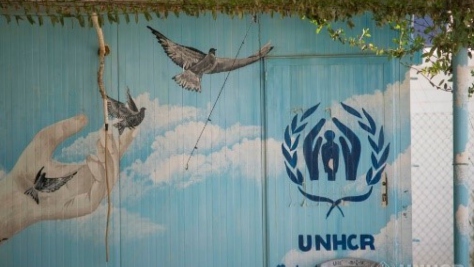
What is Sexual Exploitation, Abuse and Harassment?
All UN personnel should report sexual exploitation and abuse. Regarding sexual harassment, UNHCR's position is clear: Sexual harassment in the workplace is unacceptable and must be eradicated from operations. -
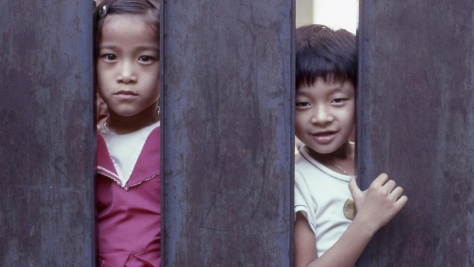
Forced To Flee: UNHCR podcast tells story of displacement over 70 years
14 Sep 2021 To mark UNHCR's 70th anniversary, a new seven-part series revisits major upheavals that shaped the period through the eyes of displaced people and others caught up in events. -
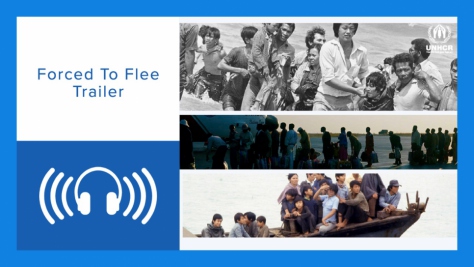
Forced to Flee #PODCAST | TRAILER
14 Sep 2021 -
Statement at the High-level Ministerial Meeting on the Humanitarian Situation in Afghanistan
13 Sep 2021 -
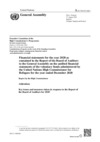
Key issues and measures taken in response to the Report of the Board of Auditors for 2020 (A/AC.96/1212/Add.1)
13 Sep 2021 -

A Victim-Centred Approach
-

Equip and Empower
This strategy serves as a guide for the tangible actions we take in the prevention of and response to sexual exploitation, abuse, and sexual harassment. This includes implementing a policy on a victim centre approach, having focal points in operations dedicated to the prevention of and response to sexual exploitation and abuse and having a victim care officer supporting survivors of sexual harassment. -
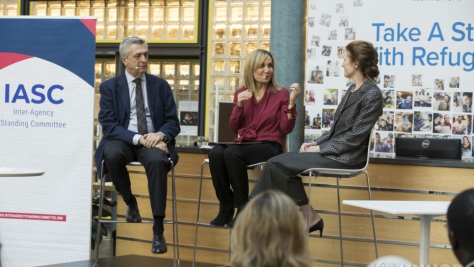
Accountability
Sexual misconduct is rooted in a culture of discrimination and privilege based on gender inequalities and power imbalances. Eradicating sexual misconduct requires a change in individual attitudes and organizational culture.
